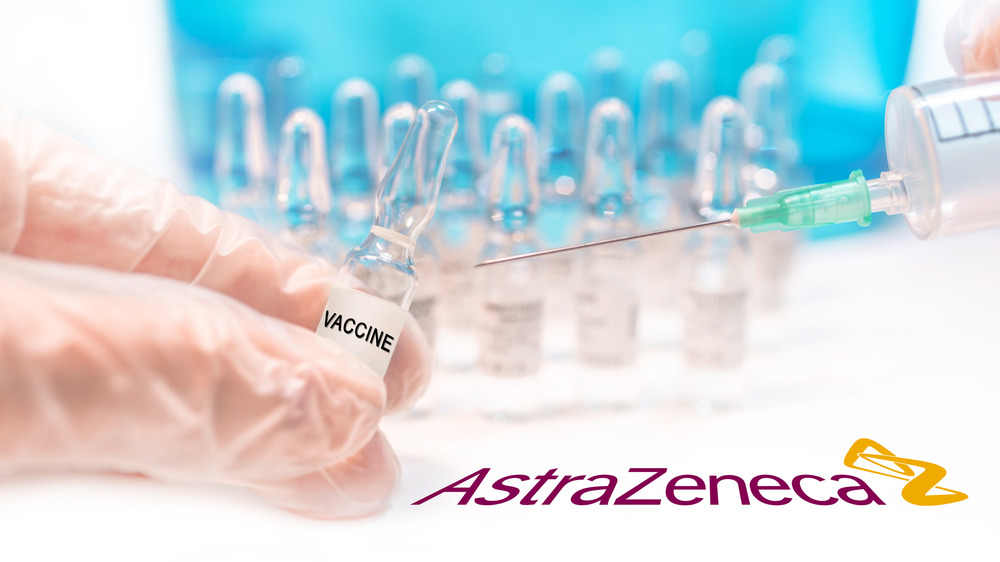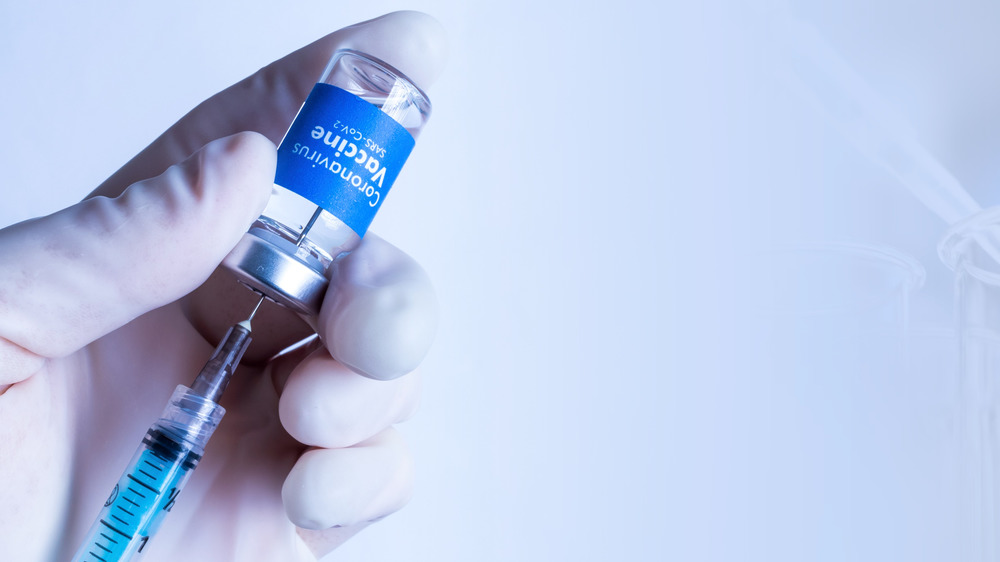The Truth About The AstraZeneca Vaccine
Three vaccines for COVID-19 are currently being distributed throughout the United States — Moderna, Pfizer, and Johnson & Johnson. However, you may have heard about a fourth vaccine that was developed by AstraZeneca and Oxford University.
The AstraZeneca vaccine was approved in the United Kingdom in December before receiving emergency use approval from the World Health Organization in February. It has not yet been approved in the United States as of this writing. This vaccination differs from some other COVID-19 vaccines, as it can be stored at higher temperatures than the Moderna and Pfizer ones can and uses different immunization technology (via Prevention). It also costs less to distribute per dose.
Let's break down some facts about the AstraZeneca vaccine.
The AstraZeneca vaccine was co-created by AstraZeneca and University of Oxford's company Vaccitech. Designed for ages 18 and older, the technology is different from the mRNA technology of the Moderna and Pfizer vaccines and is more similar to the Johnson & Johnson vaccine.
How the AstraZeneca vaccine works
The AstraZeneca vaccine uses a weakened version of a common cold virus (adenovirus) that causes infections in chimpanzees and contains the genetic material of the COVID-19 virus protein. Once you are vaccinated, the gene of the COVID-19 virus spike protein is created and triggers your immune system to attack the COVID-19 virus, according to AstraZeneca. Phase III clinical trial results showed the AstraZeneca vaccine having 76 percent efficacy after the first dose, increasing to 82 percent after an inter-dose interval of 12 weeks or more.
Similar to Johnson & Johnson's vaccine, the AstraZeneca vaccine can be stored between 36 degrees and 46 degrees for up to six months, potentially making distribution easier.
The AstraZeneca vaccine is also cheaper per dose than its vaccine counterparts. A report by BMJ estimates the AstraZeneca vaccine being around $3-4 in the United States and even cheaper in the European Union. At publication time, the Pfizer vaccine cost around $20 per dose, Moderna was between $25 and $37 per dose, and Johnson & Johnson's cost around $10 per dose.
Possible side effects of the AstraZeneca vaccine
Side effects of the AstraZeneca vaccine have been reported to be similar to the other COVID-19 vaccines, and are described as mild to moderate, and tend to improve within a few days. These symptoms include pain at the injection site and flu-like symptoms like fever, fatigue, headaches, and muscle pain.
However, at least a dozen countries in the European Union have temporarily suspended the use of the AstraZeneca vaccine after reports in Denmark and Norway of blood clotting after vaccination (via Associated Press). There is currently no definitive evidence, though, linking the shot to the cases of blood clotting, but in those countries, the vaccination program has been halted and experts are looking to see if there is any connection.
Although there are some questions about the vaccine's side effects, as well as the efficacy, the AstraZeneca vaccine, in particular, can have a large impact on global immunization for COVID-19. Health experts tell Prevention the higher temperature storage of the AstraZeneca vaccine is considered a "major advancement" in the distribution in low and middle-income countries. The AstraZeneca vaccine also uses different immunization technology than the mRNA vaccinations and costs less to distribute.
More information and research are sure to be forthcoming about the AstraZeneca vaccine, especially if it obtains approval for distribution in the United States.



